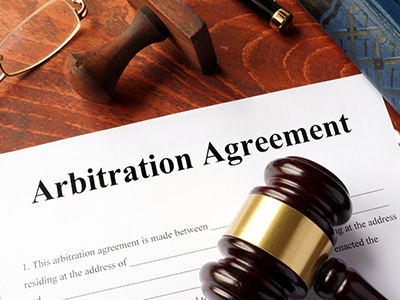
On Friday, June 16, 2017, the United States Department of Justice (DOJ) filed an amicus brief reflecting a change of heart when it comes to the enforceability of class waivers in arbitration agreements. In an unprecedented move, President Trump’s acting solicitor general, Jeffrey B. Wall, said his office had “reconsidered the issue and has reached the opposite conclusion” as the Obama administration in a set of consolidated cases currently before the U.S. Supreme Court, NLRB v. Murphy Oil USA Inc. (Docket Nos. 16-285, 16-300, and 16-307).
In the last months of the Obama administration, the National Labor Relations Board (NLRB)—then represented by the Obama administration’s Solicitor General—appealed a Fifth Circuit decision in Murphy Oil USA, Inc. v. NLRB, 808 F.3d 1013 (5th Cir. 2015) in which the circuit court mostly reversed the NLRB’s ruling that Murphy Oil’s arbitration agreements were unlawful, instead finding that the provisions that barred workers from pursuing class actions were valid. In the NLRB’s certiorari petition appealing the Fifth Circuit’s decision, it took the position that the waivers violate workers’ right to engage in concerted action under the NLRA.
Over the past few years, the NLRB has issued numerous decisions invalidating arbitration agreements because they contained class waivers. In reviewing these decisions, circuit courts have split on the issue; the Fifth Circuit has twice upheld class action waivers—in 2013, it overruled the NLRB’s decision in D.R. Horton, Inc. v. NLRB, 737 F.3d 344 (5th Cir. 2013), and following that, the court mostly reversed the NLRB ruling in Murphy Oil. The Second and Eighth Circuits have joined the Fifth Circuit in finding class waivers enforceable. In contrast, the Ninth and Seventh Circuits adopted the NLRB’s position on the issue. In January 2017, the Supreme Court agreed to review the Murphy Oil decision, along with two other lower court rulings that dealt with the legality of class waivers, Lewis v. Epic Systems Corp., 823 F.3d 1147 (7th Cir. 2016) and Morris v. Ernst & Young, No. 13-16599, 2016 U.S. App. LEXIS 15638 (9th Cir. Aug. 22, 2016).
Given this backdrop, last week’s events are particularly dramatic: On Thursday, June 15, the NLRB informed the Court that its own lawyer would represent the Board in the case going forward. (The NLRB currently has a Democratic majority, isolating it politically from the Republican Trump administration). The next day, the DOJ filed its amicus brief stating that enforcing arbitration agreements with class waivers does not deprive employees of their rights under the NLRA, and that enforcement of these provisions is required under the Federal Arbitration Act (FAA) unless an exception applies (“unless the FAA’s mandate has been overridden by a contrary congressional command or unless enforcing the parties’ agreement would deprive the plaintiff of a substantive federal right.”) This position stands in stark contrast to the NLRB’s stance.
Flip-flopping the government’s official position in an ongoing Supreme Court case is extremely rare, and it remains to be seen how the DOJ’s amicus brief will affect the Court’s analysis of the issues. For the time being, it is clear that these developments signal a potential sea change when it comes to the enforceability of class waivers in arbitration agreements, particularly in light of the Trump administration’s recent maneuvers to fill NLRB vacancies (nudging the agency toward a Republican majority) and the current composition of the Supreme Court.

